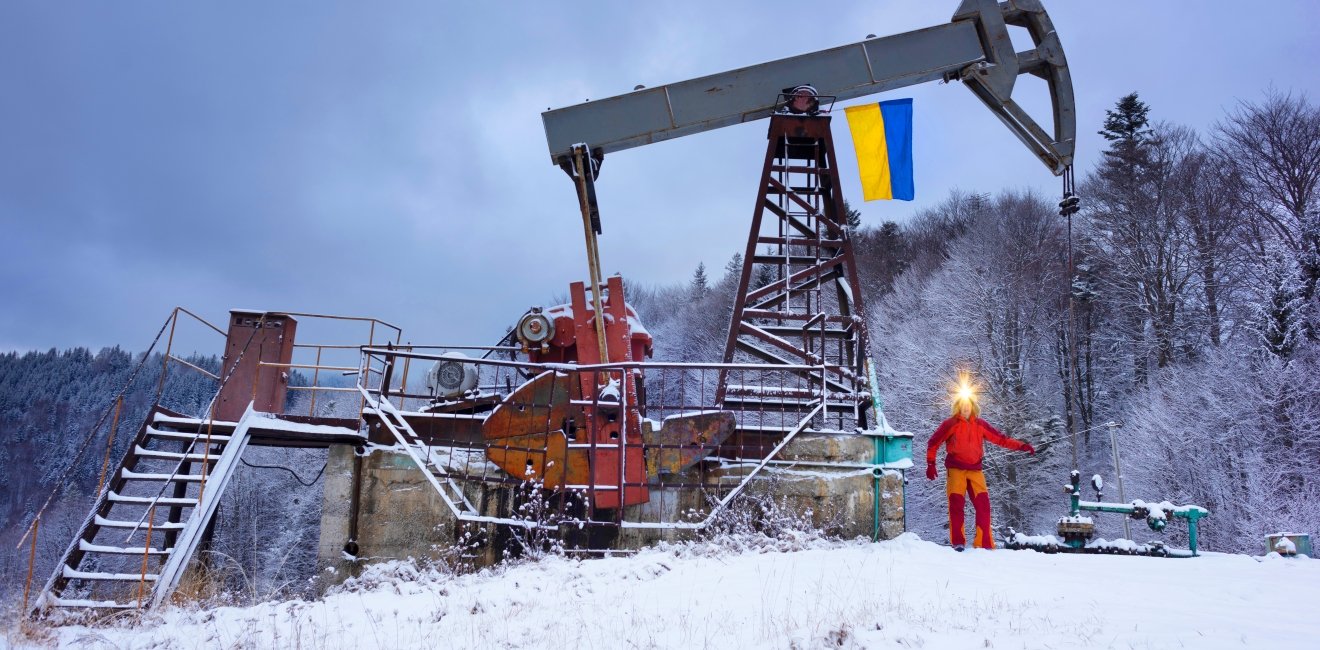
A blog of the Kennan Institute
BY ANDRIAN PROKIP
In early February, President Volodymyr Zelensky, based on the advice of the National Security and Defense Council, imposed economic sanctions against Ukrainian politician Viktor Medvedchuk, his wife, and some businesses the family had connections to. Medvedchuk, an MP and a pro-Russia politician with close personal ties to Russian president Vladimir Putin, was suspected of financing terrorism and supporting Russia-backed militants in non-government-controlled parts of Donetsk and Luhansk oblasts and in the annexed Crimea.
Among the Medvedchuk family’s businesses the best known were the media assets, including three opposition TV channels, all banned by these decisions. However, Medvedchuk, using his ties to Russia, was allegedly an important player in the Ukrainian petrol market. As reported in the media, Medvedchuk indirectly owned some petrol importing and retailing companies and controlled a diesel pipeline from Russia, coal trading companies (also in the Donbas), and an oil refinery in Russia.
So Medvedchuk was sanctioned based on government suspicions that the money made on fuel imports from Russia was being used to finance his TV channels, which in turn were “spreading pro-Russia narratives.” These sanctions also had an impact on Ukraine’s energy market and fuel supply.
Ukraine’s Petroleum Dependence on Russia
Ukraine is deeply dependent on petroleum imports. About 80 to 85 percent of all oil and oil products are imported, and most of it comes from Russia directly or through Belarus, where Russian oil is refined.
In 2020 Belarus was the source of 80.5 percent of all Ukrainian gasoline imports. Some 42.2 percent of Ukraine’s diesel imports originated in Russia, and 35.3 percent of diesel came from Belarus. Companies in these two countries provided about half the liquefied petrol gas consumed in Ukraine in 2020.
Ukraine was not always dependent on petrol imports. In 2005, for example, the situation with respect to fuel imports was quite different: that year only about 10 percent of diesel consumed in Ukraine came from abroad. In 2020, however, this imported diesel accounted for 84 percent of Ukraine’s consumption.
Viktor Medvedchuk was among the political actors who benefited from this dependence.
Medvedchuk’s Diesel Pipeline from Russia
In February 2021, President Zelensky and the National Security and Defense Council issued a decision to nationalize the Ukrainian section of the almost 900-mile-long diesel pipeline Samara–Western Direction. Allegedly it was Medvedchuk who controlled the Ukrainian part of the pipeline, while his companies traded diesel from that pipeline in Ukraine. (Medvedchuk denies he owns or has control over the pipeline.) Now, after nationalization, the Ukrainian state-owned Naftogaz will maintain and operate the pipeline.
Pipelines have always been an important part of the bigger Russia-Ukraine energy and political tensions puzzle. After the Soviet Union’s dissolution, the Ukrainian section of the pipeline network was part of a single system, now divided between Russia and Ukraine. Even though the main pipelines remained in the ownership of the newly formed states, the Samara–Western Direction pipeline was privatized, through interstate agreement, by the Russian Transneft company in 1993.
After the Orange Revolution, in 2005 the Ukrainian government started court proceedings to regain control of the pipeline. In 2015 the Supreme Commercial Court approved Ukraine’s right to own the pipeline. But Transneft’s appeal has resulted in a court decision that made it possible to resolve the dispute by selling the Ukrainian section of the pipeline to a foreign offshore company in 2016. It is this company that Ukrainian anticorruption agencies and many experts believe is controlled by Viktor Medvedchuk’s entourage (none of this has been proved in court yet).
From Russia with Love: Medvedchuk’s Fueling Stations
Ukrainian journalists have reported that some key companies in Ukraine’s retail petroleum market are controlled by Medvedchuk associates as well. In 2017 the biggest of these companies was sold by Rosneft to a Ukrainian company that allegedly was controlled by Medvedchuk.
Thus it looks as though the Russian companies were selling their Ukrainian assets to Medvechuk or his associates, in this way supporting a politician promoting stronger political and economic ties with Russia. During the Poroshenko presidency, Medvedchuk was among the key negotiators between Ukraine, Russia, and the unrecognized republics in Ukraine’s East. Beginning in 2019 he also held talks with Gazprom on direct gas supplies to Ukraine without any official authority.
Now, after all the sanctions, Medvedchuk’s political and media influence has been destroyed. All companies suspected of working for him and his political projects are under investigation and no longer trade either petroleum or diesel in Ukraine.
Further Implications?
In light of Medvedchuk’s role in Ukraine’s petroleum market and his ties with Russian politics, sanctioning may prompt an aggressive reaction by the Kremlin. Among other risks, this reaction may lead to problems with the supply of petroleum and diesel to Ukraine. Ukrainian energy traders have already reported that Russian companies are declining to export diesel to Ukraine. Even though the Samara–Western Direction pipeline brings in only 10 percent of Ukraine’s diesel needs, the sanctions against it create a political environment in Russia and Belarus that may slow or disrupt the supply. The planned repair and maintenance of the Belarusian refineries adds to the decrease in petroleum supply as well.
The upcoming months will show whether the Ukrainian agricultural sector will be hit by the hike in fuel prices and supply shortages during the planting season. This is just another reminder to Ukrainian policymakers to take energy security seriously and limit Russia’s influence on Ukraine’s energy market.
The opinions expressed in this article are those solely of the author and do not reflect the views of the Kennan Institute.
Author

Director, Energy Program, Ukrainian Institute for the Future

Kennan Institute
After more than 50 years as a vital part of the Wilson Center legacy, the Kennan Institute has become an independent think tank. You can find the current website for the Kennan Institute at kennaninstitute.org. Please look for future announcements about partnership activities between the Wilson Center and the Kennan Institute at Wilson Center Press Room. The Wilson Center is proud of its historic connection to the Kennan Institute and looks forward to supporting its activities as an independent center of knowledge. The Kennan Institute is committed to improving American understanding of Russia, Ukraine, Central Asia, the South Caucasus, and the surrounding region through research and exchange. Read more

Explore More in Focus Ukraine
Browse Focus Ukraine
Talking to the Dead to Heal the Living

Ukrainian Issue in Polish Elections


